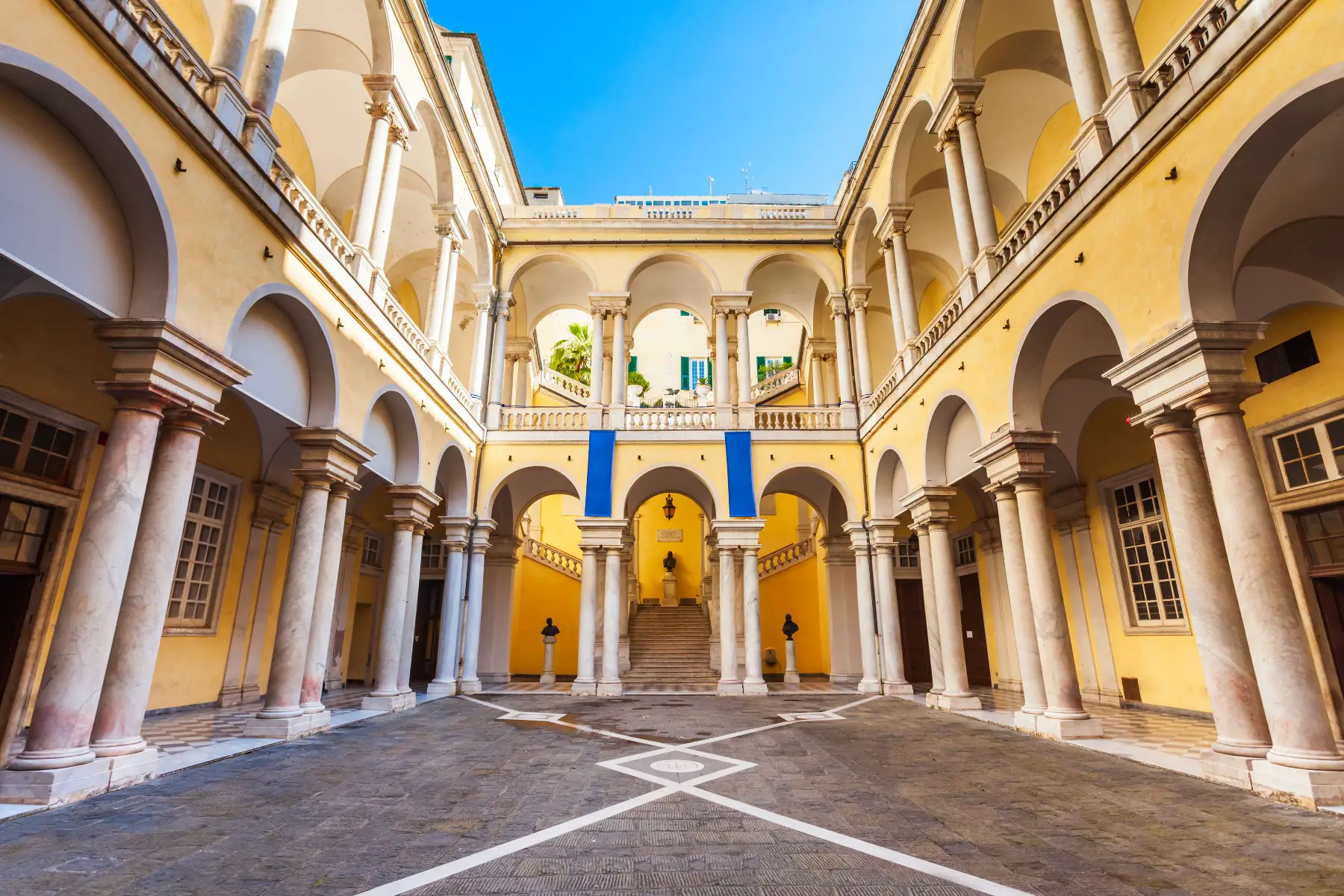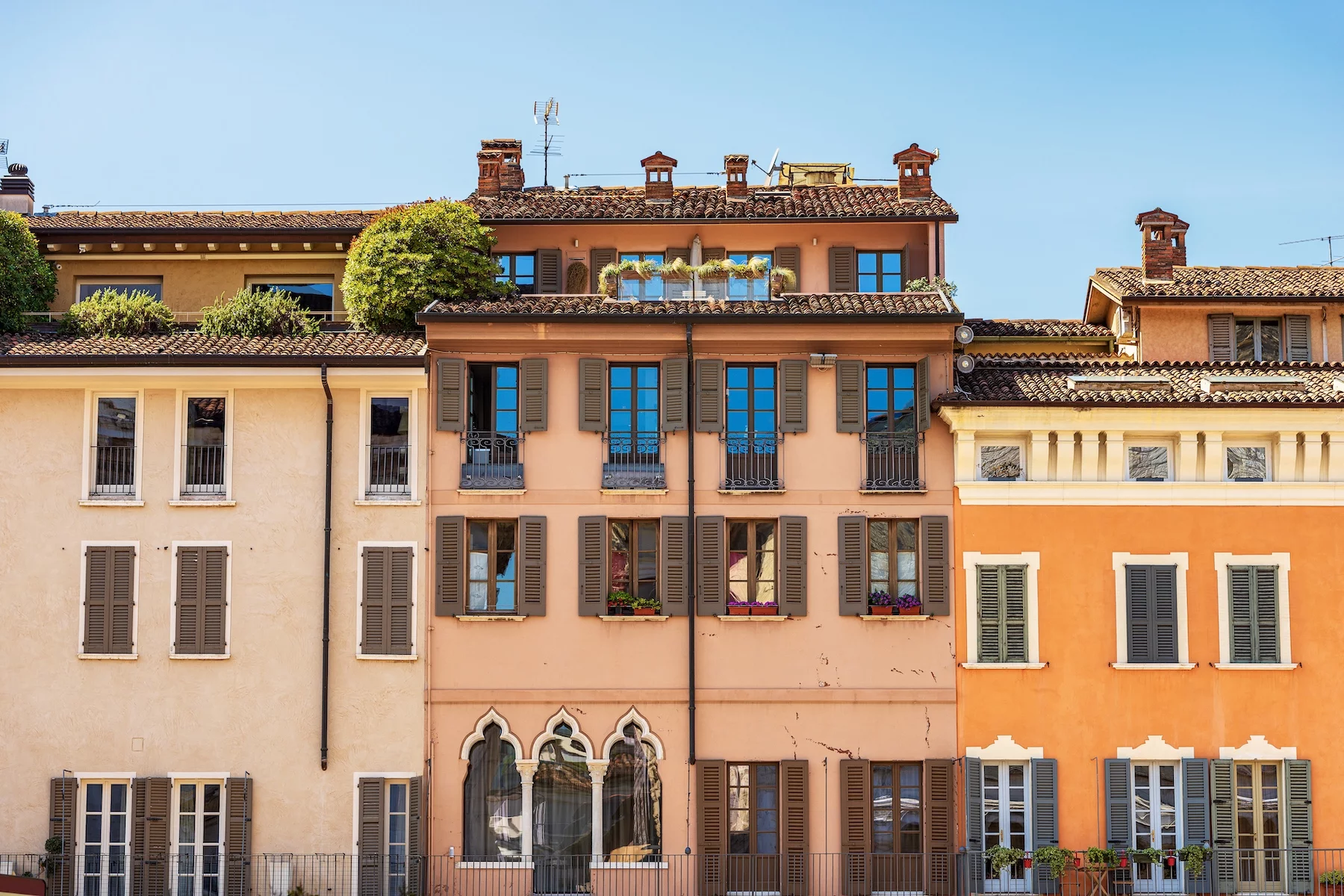Italy is a country renowned for its history, architecture, cuisine, and fine climate. It is also a country that is home to some historic universities with cutting-edge study programs offering affordable education. Unsurprisingly, Italian universities attract high numbers of international students each year.
If you’re interested in coming to study in Italy, read on to discover all you need to know about what the Italian higher education system has to offer:
University of St. Gallen
Living in Italy and thinking about studying abroad in Switzerland? The University of St. Gallen is one of the world’s best business schools, offering a range of expat-friendly study, including bachelor, master, and doctoral programs. Study law, business, international affairs, and more. For top-tier higher education, get in touch with the University of St. Gallen today.
Higher education in Italy
Italy has a long-standing higher education system that attracts students of all disciplines from around the world. It has 13 universities ranked among the top 500 of the 2022 QS World University Rankings and 25 universities in the top 500 in the 2023 Times Higher Education World University Rankings. Among the country’s best-ranked universities are the Politecnico di Milano (139th in the QS list) and the University of Bologna (161st in the Times list), which is the world’s oldest existing university (circa 1088).
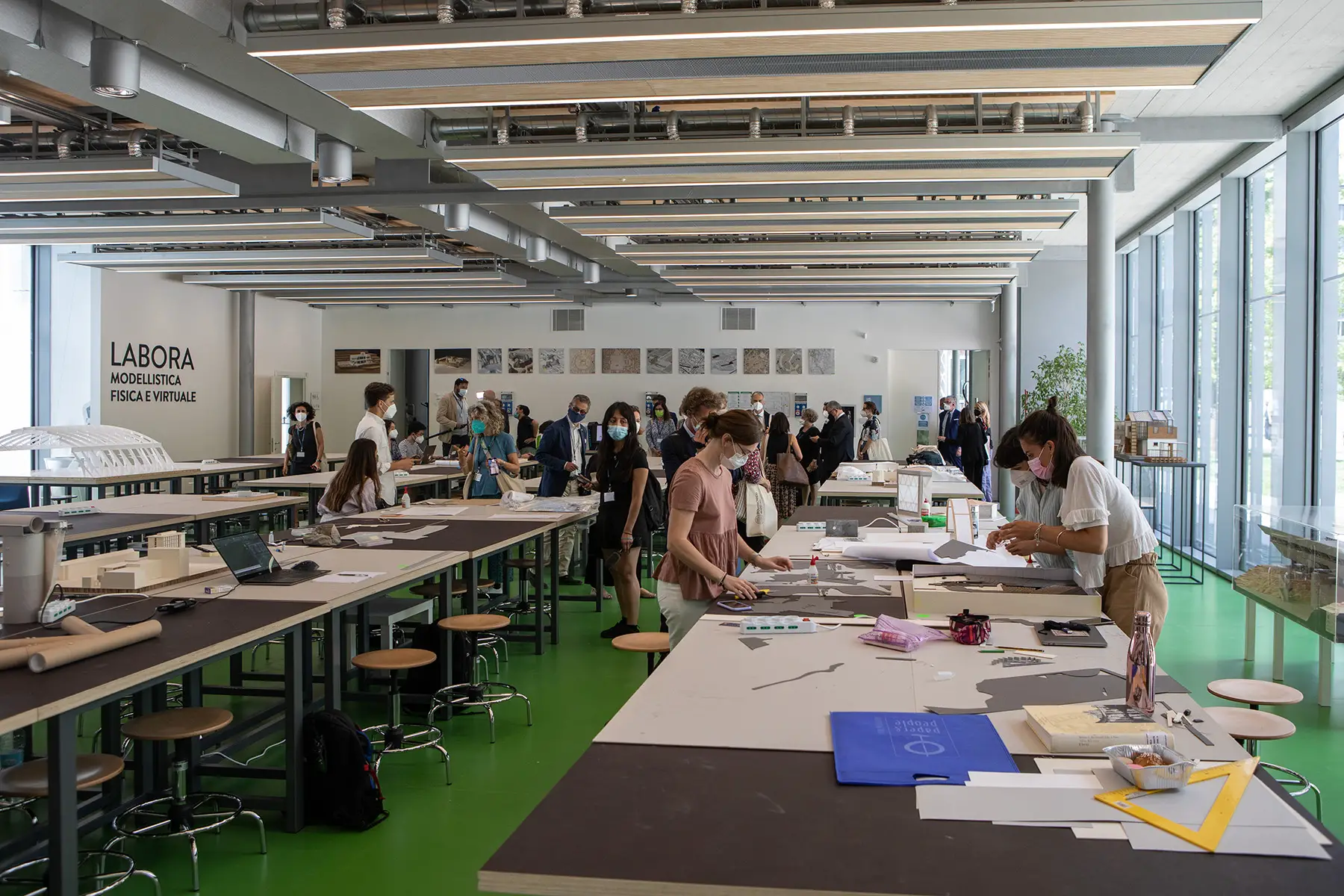
This higher education pedigree meant that around 96,000 international students came to study in Italy’s universities in 2020. This made up around 2.9% of all university students. Romania, Albania, and China were the three countries that provided the most overseas students. There are 97 universities across Italy, including 76 public and 21 private universities. In addition to this, you will also find:
- Higher education institutions for fine arts, music, and dance (alta formazione artistica, musicale, e coreutica – AFAM)
- Higher technical institutes (Istituti tecnici superiori – ITS)
There are over 130 of these establishments in Italy, plus several other institutions such as language schools and psychotherapy schools.
If you come to study in Italy, you will find the higher education system similar to that of many European countries. Students enroll in higher education from the age of 18 or 19. The study year in Italy divides into two semesters: the winter semester (September/October to January) and the summer semester (February to July). Although most programs are in the national Italian language, those looking to study in English will be pleased to learn that around 500 English-language programs are taught across Italy.
Degree programs in Italy
Degree-level study in Italy is similar to that in most other European countries. Undergraduate degrees is part of the first cycle of higher education, typically lasting three years. You get 60 credits (crediti formativi universitari) per study year, and you need 180 credits to graduate.
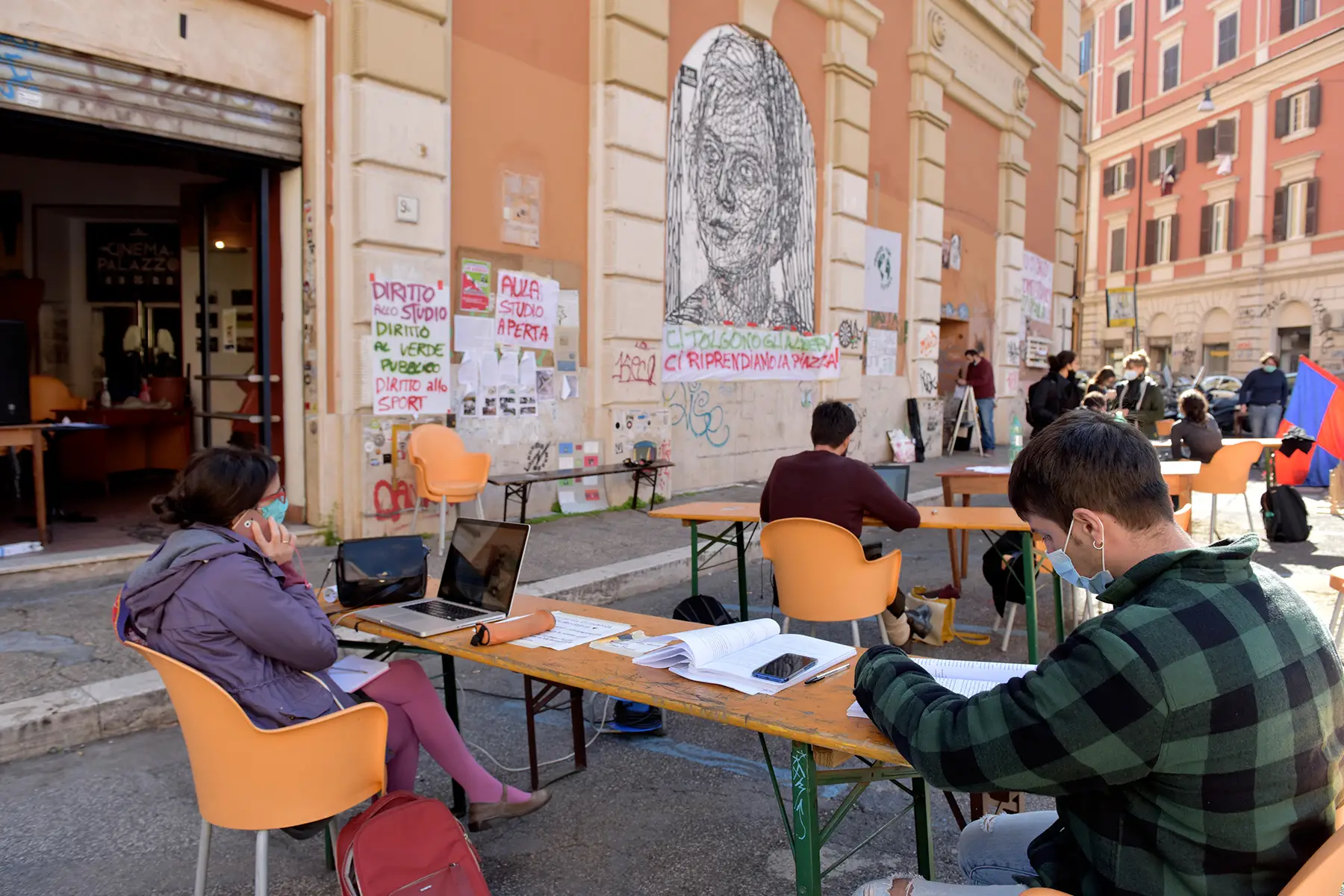
Entry to Italian universities or higher education institutions is based on school education. You typically need to have completed 12 years of schooling and have gained a secondary school diploma (diploma di liceo) to qualify for a place. Some universities only admit the highest-scoring students or have additional entrance exams. Overseas students must have equivalent qualifications and must also meet language requirements depending on the language of instruction.
There are two types of degrees awarded in Italy:
- University undergraduate degree (Laurea or Laurea Triennale) – the equivalent of a bachelor’s degree
- AFAM degree (Diploma accademico di primo livello) – the non-university degree for programs in fine arts, music, or dance
Both degrees are Level 6 qualifications according to the European Qualifications Framework (EQF).
Undergraduate tuition fees in Italy are cheaper than in countries, such as the United Kingdom (UK) and the United States (US). However, students usually pay fees each year. Expect to pay anywhere up to €5,000 a year at public universities and between €3,000 and €35,000 a year at private institutions. A public institution’s average annual tuition fees are between €1,000 and €2,000. Students from European Union (EU) and European Free Trade Association (EFTA – Iceland, Liechtenstein, Norway, and Switzerland) pay the same as Italian nationals, whereas non-EU/EFTA students usually pay more. However, grants and scholarships are available to help cover costs.
Popular degree subjects in Italy include:
- Applied sciences
- Art
- Architecture
- Design
- Hospitality
- Humanities
- Information technology
Postgraduate programs in Italy
Master’s degrees
Master’s degrees in Italy constitute the second cycle of higher education study. These programs typically last two years and are worth 120 credits. However, there are some one-year programs in areas, such as law, engineering, and education. It is also possible to enroll in a single-cycle degree program (lauree magistrali a ciclo unico), which usually lasts for five years and combines undergraduate and postgraduate degree study.
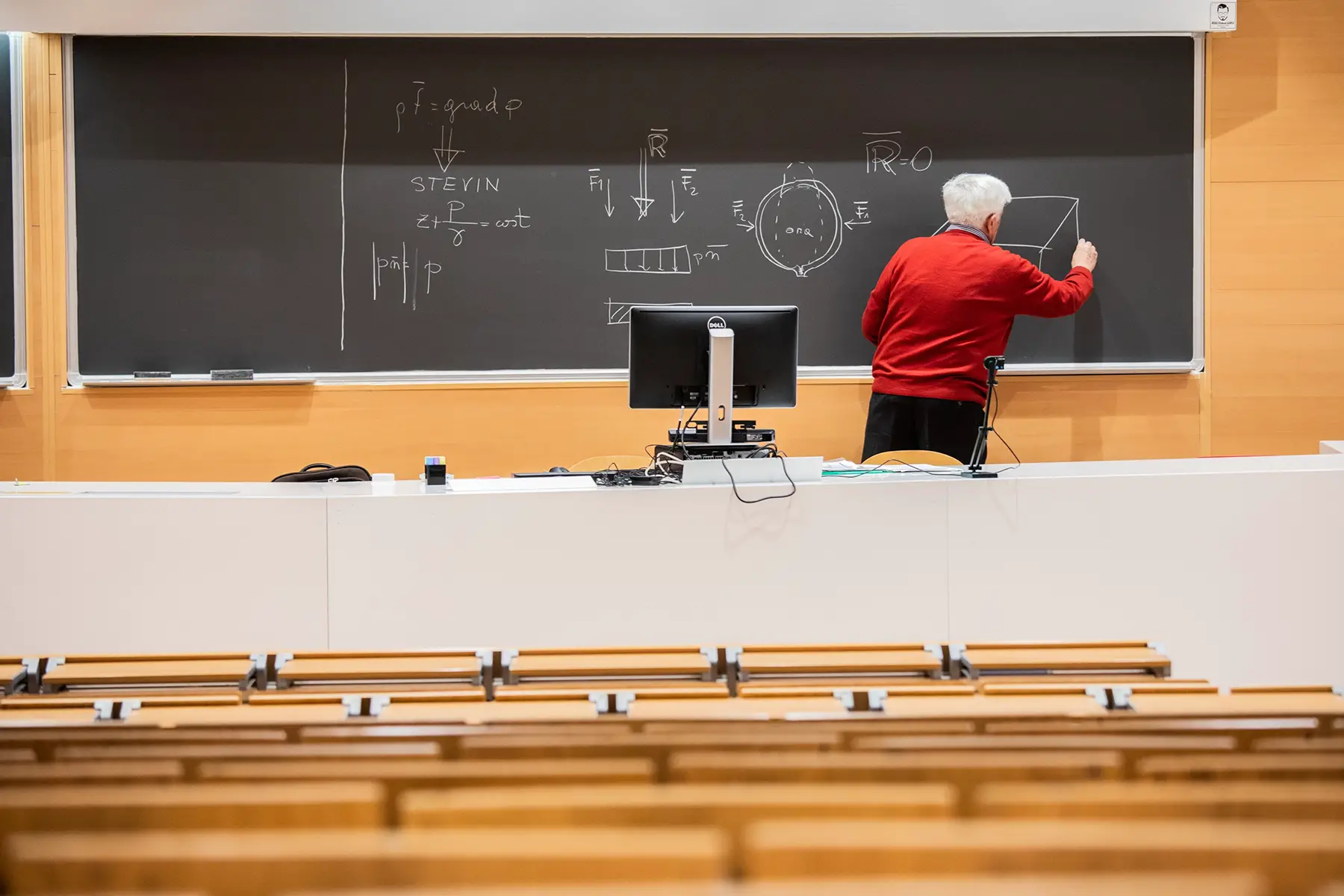
Master’s programs in Italy culminate in a dissertation, similar to those in other European countries. To gain admission, you must have either a degree qualification relating to Italy or an equivalent Level 6 qualification from overseas. International students must also meet language requirements.
The two types of master’s qualifications in Italy are:
- University master’s degree (laurea magistrale)
- AFAM Second Level academic degree (diploma accademico di secondo livello) for courses in fine arts, music, or dance
Both of these degrees are Level 7 qualifications on the European Qualifications Framework.
Master’s degrees in Italy generally cost the same as undergraduate degrees. This means that most students can expect to pay somewhere between €1,000 and €2,000 per year in tuition fees.
Doctoral programs
This is the highest level of qualification in Italy, constituting the third cycle of higher education at the equivalent of a Level 8 award on the European Qualifications Framework. Ph.D. programs in Italy typically last for a minimum of three years and involve extensive independent research culminating in an original thesis.
To gain entry to a doctoral program in Italy, you need a minimum of a master’s-level qualification; you may also need to sit an entrance exam. International students need to meet language requirements. Costs per year are broadly the same as other degree and postgraduate programs.
University doctoral programs in Italy are called dottorato di ricerca (research doctorate, equivalent to a Doctor of Philosophy). In contrast, at AFAM institutions, they are known as diploma accademico di formazione alla ricerca.
Specializing master’s and continuing education programs
Some Italian universities offer specialist postgraduate degree courses to increase a student’s professional education. These are usually linked with particular professions, such as law or medicine.
These specialized postgraduate programs equip students with the knowledge, skills, and qualifications to work as specialists within their field, and last one to two years. Fees may be slightly more expensive than a general degree or postgraduate study programs.
Another option is to look further afield – there are many specialist schools dotted around Europe, including St. Gallen in Switzerland, which offers degrees in business, law, and more.
Other study programs in Italy
In addition to degrees and postgraduate programs, Italy also has higher technical institutes (istituti tecnici superiori – ITS), which offer vocational-based programs in areas of technology. Courses are similar to those in other higher education programs but lean more toward work-based learning. For example, around 30% of courses involve vocational internships or placements.
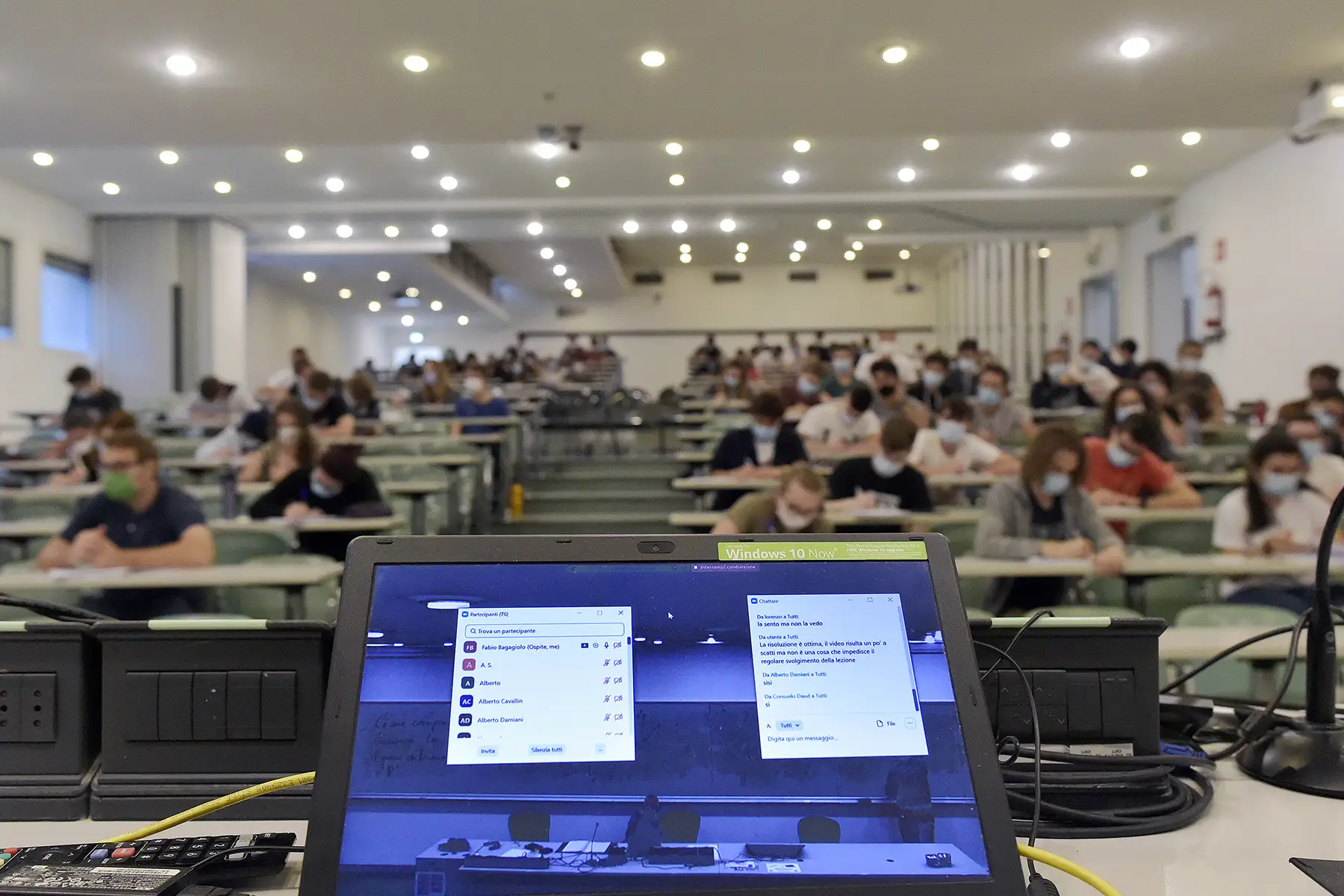
ITS courses usually last two to three years and end with a final exam. Students who pass obtain the ITS diploma (diploma di tecnico superiore), which is a Level 5 qualification.
ITS programs are available in six areas of study:
- Energy efficiency
- Sustainable mobility
- New technologies for life
- Innovation technologies for cultural activities and tourism
- Information and communication technologies
- New technologies in Italy
As with university degree programs, you usually need a secondary school diploma to gain an ITS place. Study fees are similar to other higher education courses in Italy.
Qualifications awarded in Italy
Italy is a member of the European Higher Education Area (EHEA) and the Bologna Process. This means that universities and institutions follow the European Credit Transfer and Accumulation System (ECTS), where higher education is split into cycles (corresponding to different levels on the EQF) with a set number of credits awarded for each study year.
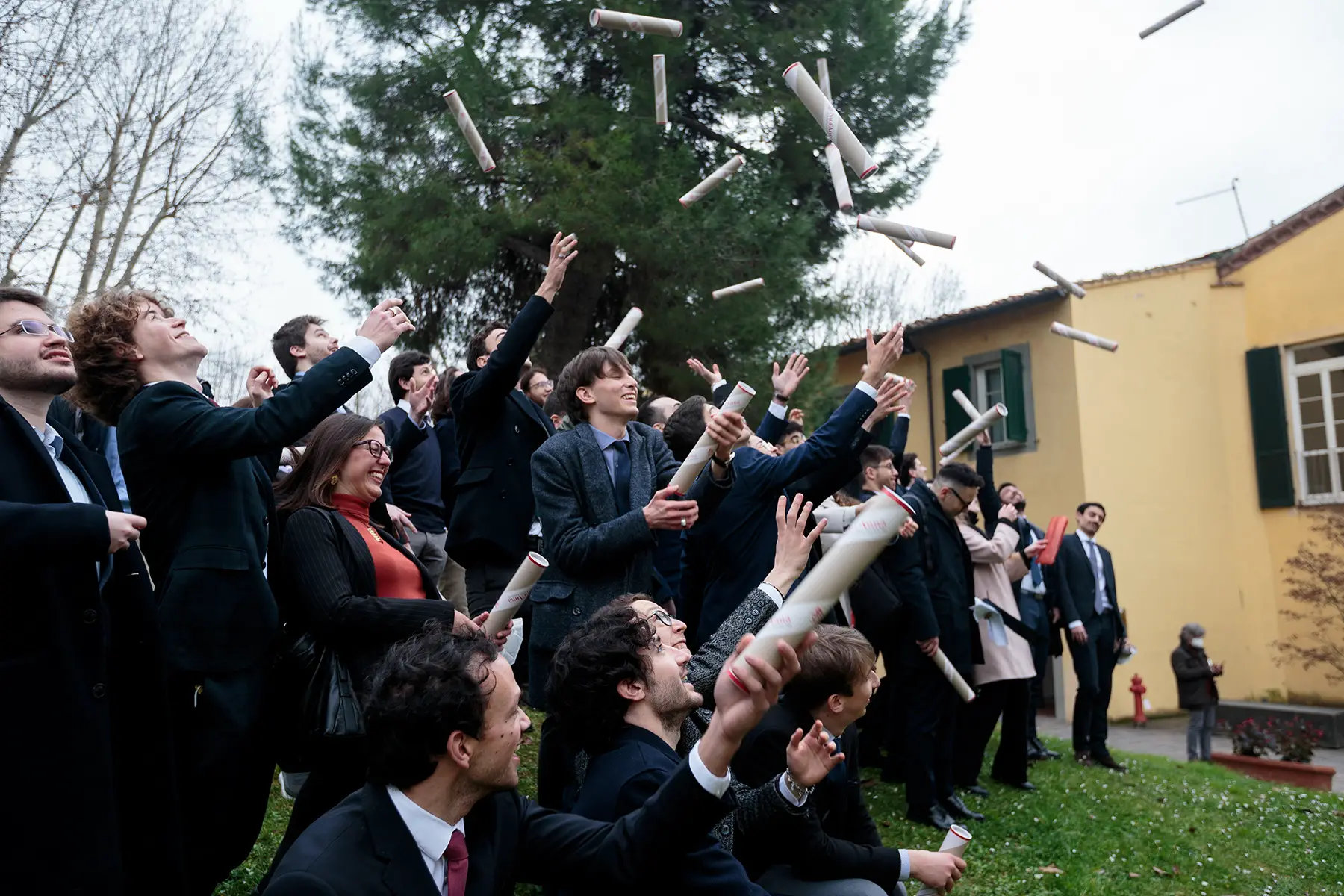
Italian universities and AFAM institutions use three cycles of education:
- First cycle (Level 6): Degree qualification (Laurea or Diploma accademico di primo livello) lasting three years and worth 180 ECT credits in total
- Second cycle (Level 7): Master’s qualification (Laurea magistrate/specialistica or Diploma accademico di secondo livello) lasting two years and worth 120 ECT credits in total
- Third cycle (Level 8): Ph.D. (Dottorato di ricerca or Diploma accademico di formazione alla ricerca) lasting 3–5 years and worth between 180–300 ECT credits in total
In addition, many institutions offer specialist and vocational postgraduate diplomas at Levels 7 or 8. These usually last for one or two years.
The ITS institutions offering technical qualifications award diplomas on the first cycle that equate to Level 5 (two years of study). Those wishing to further their education can usually enroll in an additional year of study to take their qualification up to Level 6 and, subsequently, continue into postgraduate education (master’s or diploma) if they wish.
Read more about the Italian Qualifications Framework on the QTI website.
General requirements to study in Italy
Visa requirements
Students from EU/EFTA countries don’t need a visa to study in Italy. However, they must register with their municipal authority and the Italian national health service if they stay in Italy for more than three months.e if they are staying in Italy for more than three months.
Non-EU/EFTA students typically require a student visa for Italy. Students from some countries may be exempt from visa requirements if coming to study short courses lasting less than three months. If you are a third-country national studying in Italy for longer than three months, you must apply for a student visa from the Italian embassy or consulate in your home country, before you travel.
Language requirements
If you are studying a higher education program in Italian, you need to demonstrate sufficient knowledge of the Italian language. That is at a B2 level on the Common European Framework of Reference (CEFR) scale. You may need to take an Italian language course or sit a language exam if you don’t have proof of language skills, such as a language course certificate or Italian qualifications.
Some study programs in Italy are conducted in English. If this is the case, you must prove that your level of English is at least at a B2 level. You can prove this with an English language certificate issued by one of the standard testing bodies, such as IELTS or TOEFL, or if you have qualifications gained at an accredited English-language educational institution.
Getting overseas qualifications recognized
Italy belongs to the Bologna Process, which seeks to standardize educational qualifications across European countries. It makes it easier for those studying abroad to transfer qualifications from their home country. The process is named after the University of Bologna where the initial declaration was signed in 1999.
You can get your foreign qualifications recognized in Italy through the Academic Equivalence Mobility Information Center (Centro di Informazione sulla Mobilità e le Equivalenze Accademiche – CIMEA). This is the official body in Italy for recognizing international qualifications and issuing statements of comparability. You usually need to do this through the university you are applying to, so check the institution’s guidelines.
You can find more information about the recognition and translation of foreign academic qualifications in Italy on the country’s ENIC-NARIC page.
How much does it cost to study in Italy?
Italy is one of the more affordable European countries to study. However, fees vary according to where you enroll and your nationality. Public institutions are cheaper, costing between €1,000 and €2,000 a year in tuition fees. These costs, however, can increase for non-EU/EFTA students, with some programs costing up to €4,000 or €5,000 a year.
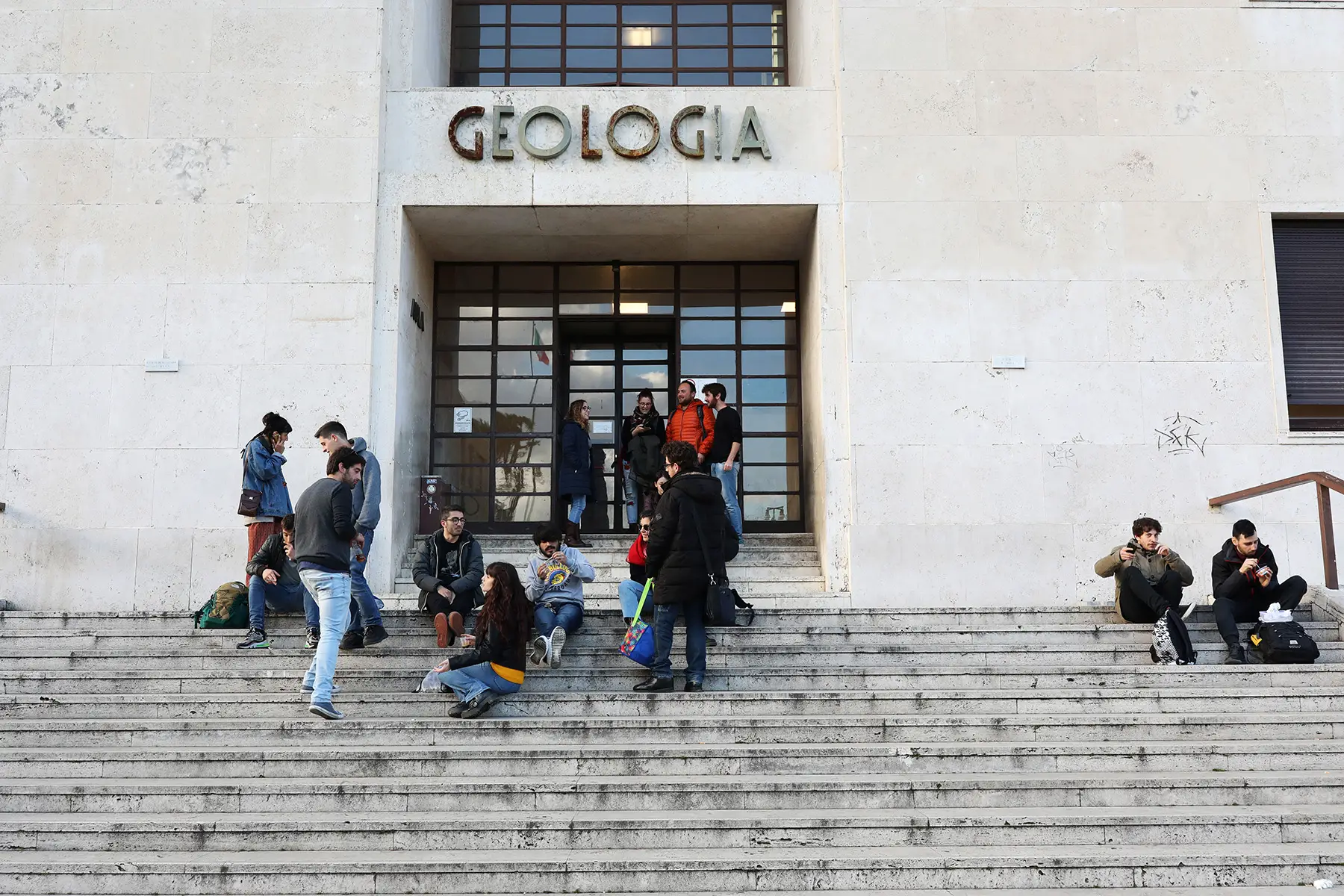
Private university fees are typically more expensive, ranging between €6,000 and €20,000 a year. Again, this depends on different factors, and third-country nationals pay more. Some private institutions charge less, with the lowest prices starting at around €3,000 annually for EU/EFTA nationals. At the other end of the scale, the most expensive programs for non-EU/EFTA students can reach €35,000 a year.
On top of tuition fees, students pay for accommodation and study materials, along with general day-to-day living costs, which is more expensive in big cities such as Rome (Roma) and Milan (Milano). However, it’s generally cheaper than in many Northern European countries.
Study grants and funding available
Although you usually have to pay tuition fees to study in Italy, funding is available to cover the costs. The good news is that most funding opportunities are available to international students and Italian citizens. Types of financing offered to undergraduate and postgraduate students in Italy include grants, scholarships, student loans, fee waivers, and help with accommodation and living costs. However, much of this funding is limited, and you must meet eligibility requirements (e.g., demonstrating financial need or academic excellence).
Sources of funding for studying in Italy include:
- Government funding: The Ministry of Education (Ministero dell’Istruzione e del Merito) provides some funding to low-income Italian nationals and scholarships for postgraduate research doctorates. For international students and Italian citizens living abroad, the Ministry of Foreign Affairs and International Cooperation (Ministero degli Affari Esteri e della Cooperazione Internazionale – MAECI) has a grant program offering up to €900 a month for students in certain fields. You should apply through MAECI’s English-language website.
- University funding: Most Italian universities and higher education institutions have their own funding programs, ranging from fee waivers to scholarships. Check with the institution you are applying to for details.
- Regional funding: Many Italian regions have student scholarship schemes, although these are often limited. Examples include EDISU Piemonte and DSU Toscana (links in Italian).
- Erasmus+ scheme: Funding for European students
- Student loans: low-interest loans are available from some Italian banks. Some universities also offer interest-free loan schemes.
You can further search for funding and scholarships to cover study costs in Italy on websites such as Study Portals.
How to apply to study in Italy
There is no central application procedure for Italian universities and higher education institutions. This means that you need to apply directly to the individual universities. Each institution has its application procedure, so check for details and deadlines on the website. EU/EFTA citizens can apply straight to the university. Non-EU/EFTA nationals needing an Italian visa should pre-enroll through the Universitaly portal, the Italian embassy, or consulate in their home country.
The enrollment period for most programs is usually between February and July. Check first to see what the course requirements are before applying. You can search for courses on the Universitaly website. For some universities or programs, you may need to sit an entrance exam before applying. You will typically need to provide:
- Valid passport or photo ID
- Two passport photographs
- Completed application form or pre-enrollment form
- Proof of academic qualifications, translated into Italian, along with recognition of educational equivalence
- Proof of proficiency in Italian (or English if studying an English-language course)
- Additional documentation as required (e.g., letter of recommendation, supporting statement)
If you get accepted into a study course in Italy, you can proceed with your student visa application if you need one. You also need to sort out your finances and pay the first installment of your tuition fees.
What’s student life like in Italy?
Student life in Italy varies in different parts of the country and across the types of institutions. The bigger cities tend to have a more vibrant student culture, with Milan (48) and Rome (74) ranking among the top 100 destinations worldwide in the QS Best Student Cities 2023. International students have plenty of opportunities to immerse themselves in Italian culture and nightlife without damaging their bank balance too much, as the cost of living in Italy isn’t too high by European standards.
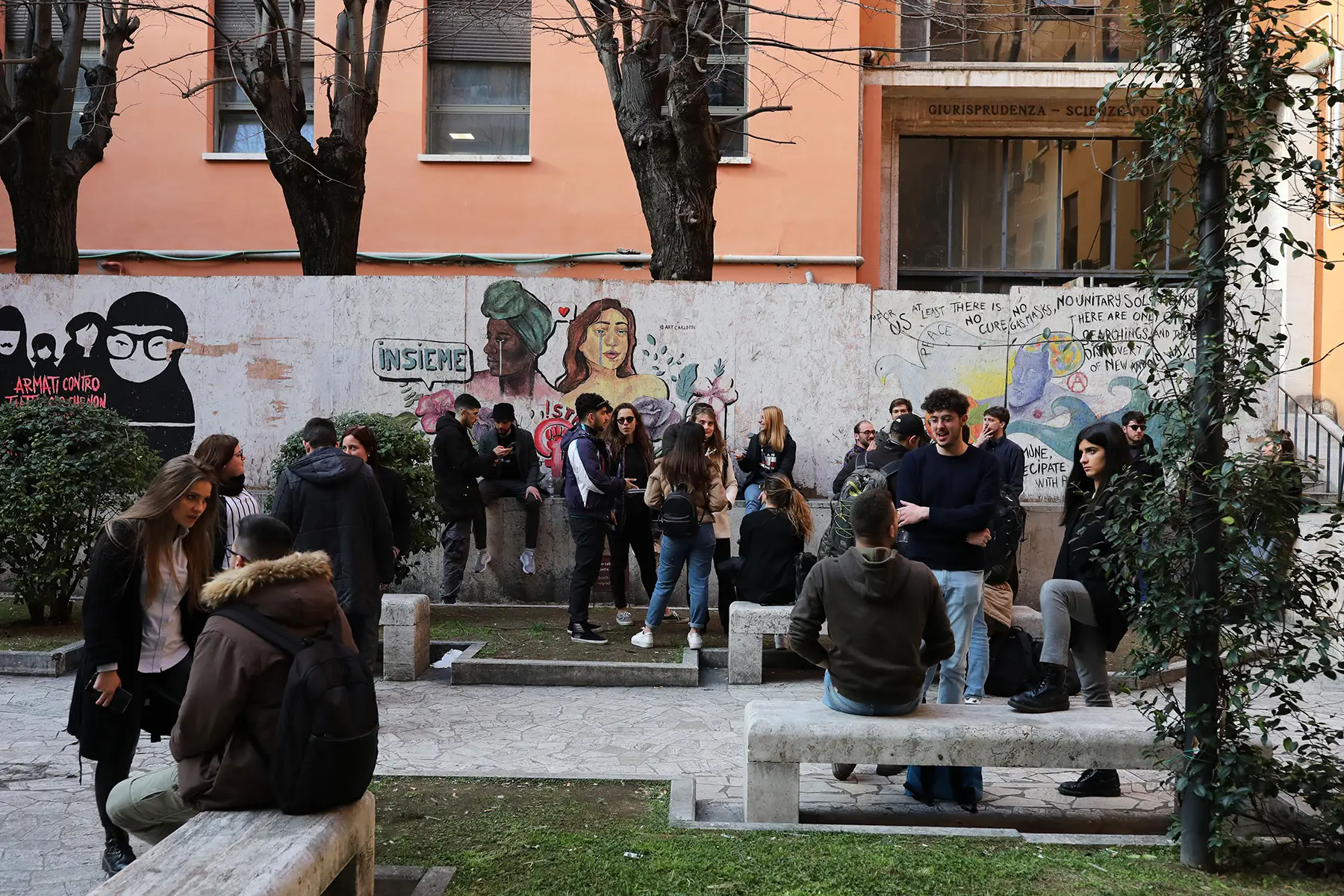
Full-time students in Italy generally study at least 20 hours per week during term time. However, each student is left to plan their own private timetable, so exact hours will vary. As with many European countries, studying in Italy combines lectures, seminars, practical learning, and exams. Each university has its network of clubs and associations, enabling students to get the most out of their study experience. Most universities have an International Students Association. There is also the Erasmus Student Network (ESN) and the AEGEE European Students Forum.
While it’s important to have fun and explore both the social and academic side of student life when you first arrive in Italy, don’t forget also to sort out administrative essentials, such as getting your tax number from the Agenzia delle Entrate, Italy’s tax office.
Student accommodation options
You can generally find student accommodation through your university. Although most universities in Italy don’t have large halls of residence common in other parts of the world, most manage a range of student housing facilities and can provide information on dorms, rooms within shared apartments, or student-specific residences.
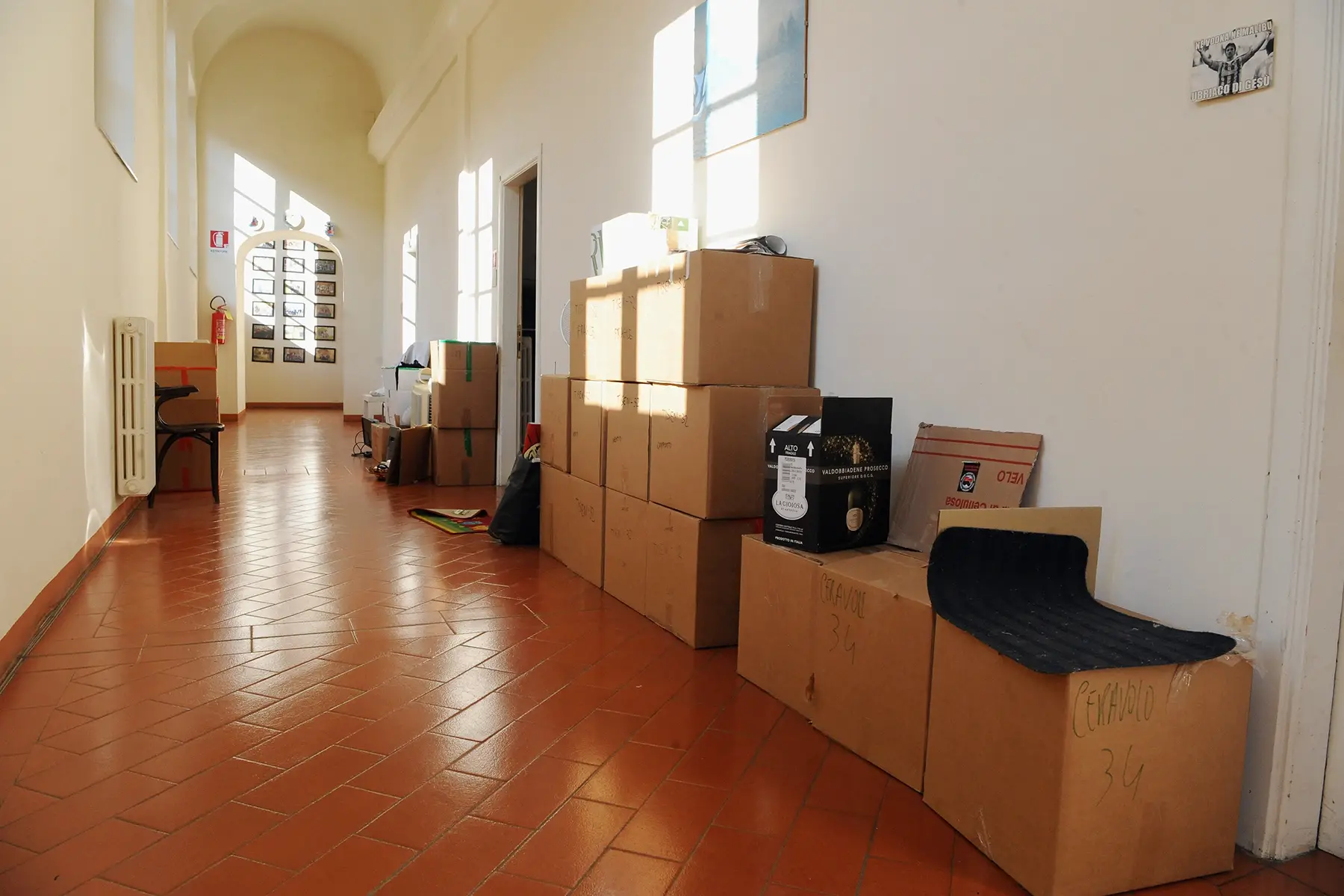
You can also look for private rentals through several websites offering student accommodation, including:
If you’re only staying in Italy for a short time, or need a place to stay temporarily, it’s worth checking for rooms and apartments on sites such as:
Accommodation costs vary according to location (more expensive in larger cities), type, and whether you are rent a room or a whole apartment. Typical costs are:
- Student accommodation (e.g., a dorm): €250–400 a month
- Shared room in private accommodation: €300–600 a month
- Renting a one-bedroom apartment: €500–1,000 a month
Can you work while studying in Italy?
EU/EFTA students in Italy can work without restrictions while studying, and don’t need a work permit. However, if you are from a country outside the EU/EFTA, you can work no more than 1,040 hours per year on your student visa, which is around 20 hours per week. Third-country nationals cannot be self-employed while enrolled as a student.
If you have a student visa in Italy and want to look for work after graduating, you must change your residence permit to work purposes rather than study.
Volunteer work
Students often like to do voluntary work or take up an internship while studying or during vacations. Many Italian universities have details of both volunteering and internship opportunities available to students both in Italy and abroad. Check your university’s website for more information.
The country has a sizable third sector comprising over 1,600 non-profit organizations of varying sizes and types. You can search for organizations by region or social cause on Italia Non Profit. The website also has information on how to apply to volunteer in Italy (in Italian).
If you are aged between 18 and 30 and are interested in volunteering in Italy or abroad for a period of two to 12 months, you could also take up a placement with the European Voluntary Service (EVS).
Student healthcare in Italy
Italy’s national health service (Servizio Sanitario Nazionale – SSN) provides public healthcare to all residents. There are also many private medical providers. EU/EFTA students can access public healthcare in Italy through the European Health Insurance Card (EHIC) during short stays of less than three months. If staying in Italy for longer than this, they must register with the SSN in their local area of residence.
Students from outside the EU/EFTA need to purchase health insurance coverage as part of their Italian student visa application. This entitles them to healthcare on the SSN. They can choose an extended policy also covering private medical treatment if they wish.
Many international health insurance providers offer insurance packages suitable for students relocating to Italy, including the following:
Study exchange programs
Student exchange programs are available through many Italian universities that have partnered up with universities worldwide to offer the chance to study in another country for a semester, or sometimes for a year, as part of their tuition program. You can find details of exchange programs through individual university websites.
The EU funds overseas study opportunities for both EU/EFTA citizens and third-country nationals through the Erasmus+ program. Partnership schemes are also created to foster international collaboration between specific countries, such as the US-Italy Fulbright Exchange Program, which offers exchange and scholarship opportunities.
Additionally, some countries have exchange schemes to give students the opportunity to participate in study and training exchanges in Italy, such as the Turing Scheme in the United Kingdom.
Career prospects after graduation
After finishing your studies in Italy, you can stay in the country to continue studying, take up employment, or start your business. If you are from outside the EU/EFTA and have a student visa and residence permit, you can apply to either extend this (if still studying) or switch to a work-based permit (if you have a job offer). You can also apply for a work visa for the purposes of job-seeking or entrepreneurship if you want to stay and look for a job or start your own venture in Italy. This is valid for one year.
There are many resources to help graduates find jobs in Italy. If you’re looking for an ethical or sustainable career or want to work for a non-profit or NGO, you can try sites such as Acre or ImpactPool. You can also search for voluntary sector organizations on Italia Non Profit (in Italian).
Useful resources
- Ministero dell’Istruzione – Italian government ministry responsible for education (in Italian)
- Ministero degli Affari Esteri e della Cooperazione Internazionale – website with information on higher education in Italy and a portal to apply for government grants
- Universitaly – Ministry of Education portal for students in Italy
- Uni-Italia – website assisting international students in Italy


